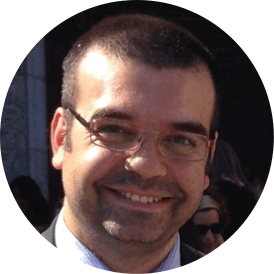Complexity in Transdisciplinarity
- Michael Panao
- 5 de dez. de 2016
- 2 min de leitura

There are three assumptions in transdisciplinarity.
Levels of understanding reality and levels of perception
The logic of the third included
Levels of understanding reality have a complex structure
I'd like to think about the last assumption.
Basarab Nicolescu says this complexity is expressed by each is what it is because all other levels exist simultaneously.
We often partition knowledge and try to put it in little boxes in our mind to make everything is in the right place. I understand that, but aren't we missing the richness when disciplines interact? Where is nowadays the space for promoting interaction? Universities should be the right place. However, we're divided into departments and rarely meet with the purpose of interacting within our fields of knowledge. However, I know an experience where this happens, and it called "Abba School". You can read it in "Introduction to the Abba School" published by New City Press.
The "Abba School" appeared out of a particular context. The Focolare Movement was born in 1943, during World War II in Trento, Italy, by Chiara Lubich. This is a Catholic Movement and its charisma is unity. The source of this spirituality is found in several writings by Chiara in 1949 and several people in the movement, especially those working in academia, experienced in these "essential writings" a new way of seeing their field of expertise. To deeper the novelty of the charisma in the several fields, the Abba School emerged.
In the case of science, Sergio Rondinara, graduated in nuclear physics and theology, was the one from my field. In his words, the experience is both profound and simple.
«if I find myself representing a certain discipline, with experts of other disciplines, in the approach of a common issue, I will present the contribution of my discipline, not as self-affirmation or declaration of a truth concluded in itself, but as a contribution to the process, as an emptying of that which is precious to me – the truth I possess – to make that a gift for others. In making of my intellectuality a gift, its contents, therefore, are no longer mine because I gave them. For the giving of my intellectuality, with its contents, be fully realized, the one who listens to me is required, in its turn, to be empty of the possession of his own truth and, because of that, be able to welcome the gift that I made of myself to him. In other words, if the exodus of myself toward others corresponds not only to the welcoming of myself to others, but also the symmetrical movement of the other’s exodus of himself in his self-giving to me, and my full welcoming of him because I’m already empty out of love, then, the reciprocal dynamic of agape will act».
We usually misinterpret complexity with complication. A complicated thing generates division among its parts and the sense of giving up going deeper into what separates us grows in us. This is not good. Complexity recognizes that we do not control everything. There is a lot of unknowns to know. Complexity is an evolutionary expression of relationality in the universe. Therefore, it seems logical it becomes something essential in transdisciplinary.







Comentários